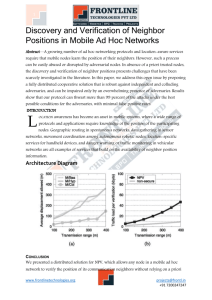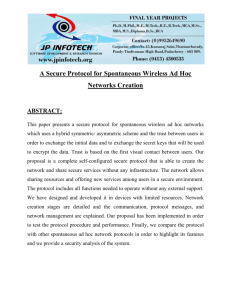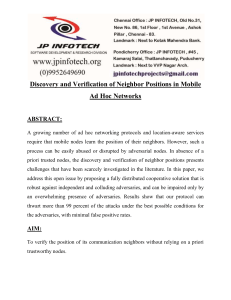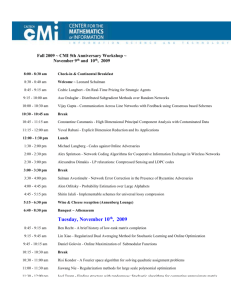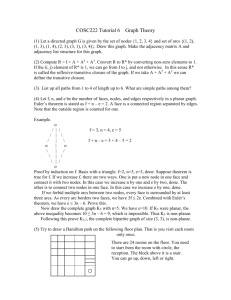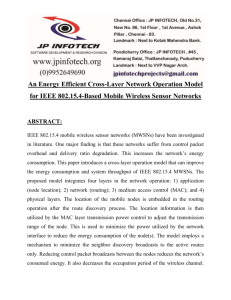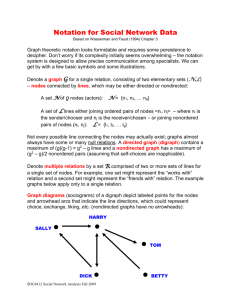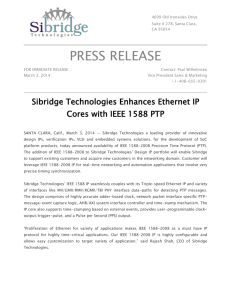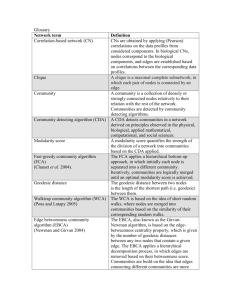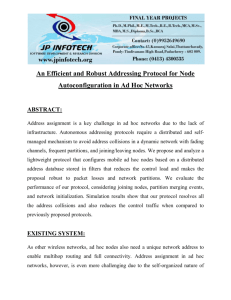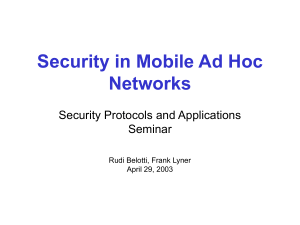Discovery and Verification of Neighbor Positions in Mobile Ad Hoc
advertisement
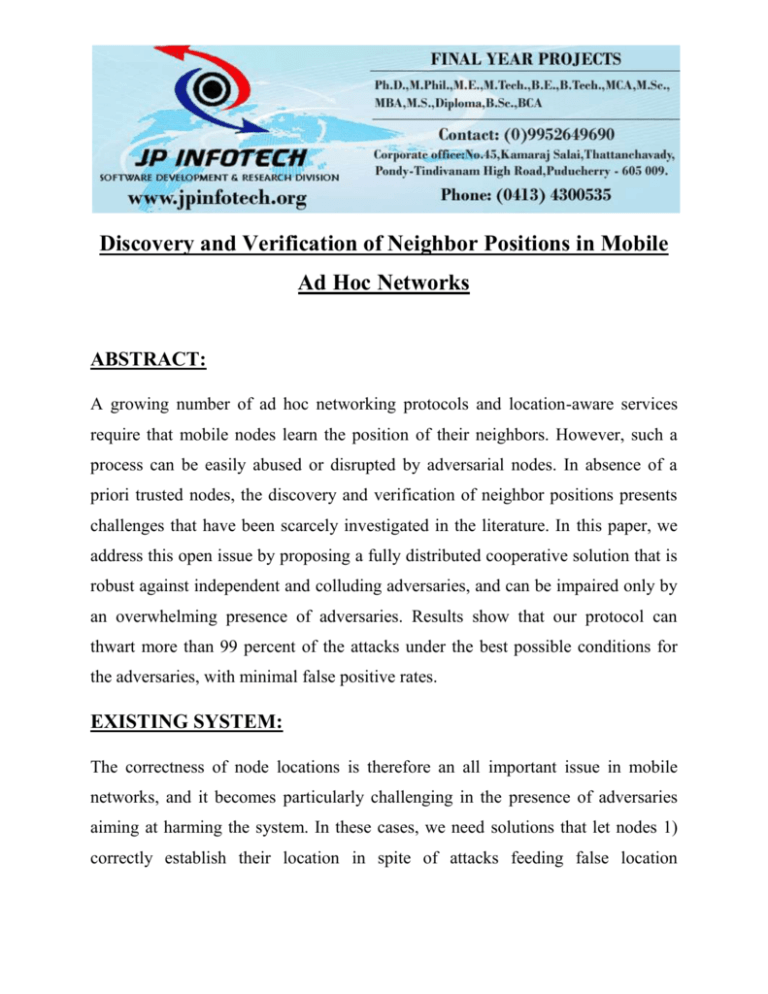
Discovery and Verification of Neighbor Positions in Mobile Ad Hoc Networks ABSTRACT: A growing number of ad hoc networking protocols and location-aware services require that mobile nodes learn the position of their neighbors. However, such a process can be easily abused or disrupted by adversarial nodes. In absence of a priori trusted nodes, the discovery and verification of neighbor positions presents challenges that have been scarcely investigated in the literature. In this paper, we address this open issue by proposing a fully distributed cooperative solution that is robust against independent and colluding adversaries, and can be impaired only by an overwhelming presence of adversaries. Results show that our protocol can thwart more than 99 percent of the attacks under the best possible conditions for the adversaries, with minimal false positive rates. EXISTING SYSTEM: The correctness of node locations is therefore an all important issue in mobile networks, and it becomes particularly challenging in the presence of adversaries aiming at harming the system. In these cases, we need solutions that let nodes 1) correctly establish their location in spite of attacks feeding false location information, and 2) verify the positions of their neighbors, so as to detect adversarial nodes announcing false locations. DISADVANTAGES OF EXISTING SYSTEM: Although the literature carries a multitude of ad hoc security protocols addressing a number of problems related to NPV, there are no lightweight, robust solutions to NPV that can operate autonomously in an open, ephemeral environment, without relying on trusted nodes. PROPOSED SYSTEM: In this paper, we focus on the latter aspect, hereinafter referred to as neighbor position verification (NPV for short). Specifically, we deal with a mobile ad hoc network, where a pervasive infrastructure is not present, and the location data must be obtained through node-to-node communication. Such a scenario is of particular interest since it leaves the door open for adversarial nodes to misuse or disrupt the location-based services. ADVANTAGES OF PROPOSED SYSTEM: NPV protocol that has the following features: It is designed for spontaneous ad hoc environments, and, as such, it does not rely on the presence of a trusted infrastructure or of a priori trustworthy nodes; It leverages cooperation but allows a node to perform all verification procedures autonomously. This approach has no need for lengthy interactions, e.g., to reach a consensus among multiple nodes, making our scheme suitable for both low- and highmobility environments; It is reactive, meaning that it can be executed by any node, at any point in time, without prior knowledge of the neighborhood; It is robust against independent and colluding adversaries; It is lightweight, as it generates low overhead traffic. SYSTEM ARCHITECTURE: ALGORITHMS USED: Message exchange protocol: verifier. Message exchange protocol: any neighbor. SYSTEM CONFIGURATION:HARDWARE CONFIGURATION: Processor Speed - Pentium –IV 1.1 Ghz RAM - 256 MB(min) Hard Disk - 20 GB Key Board - Standard Windows Keyboard Mouse - Two or Three Button Mouse Monitor - SVGA SOFTWARE CONFIGURATION:- Operating System : Windows XP Programming Language : JAVA Java Version : JDK 1.6 & above. REFERENCE: Marco Fiore, Member, IEEE, Claudio Ettore Casetti, Member, IEEE, CarlaFabiana Chiasserini, Senior Member, IEEE, and Panagiotis Papadimitratos, Member, IEEE, “Discovery and Verification of Neighbor Positions in Mobile Ad Hoc Networks”, IEEE TRANSACTIONS ON MOBILE COMPUTING, VOL. 12, NO. 2, FEBRUARY 2013.
